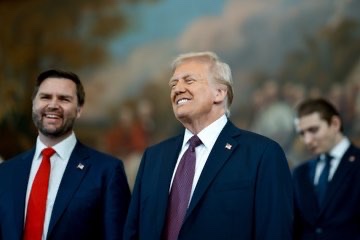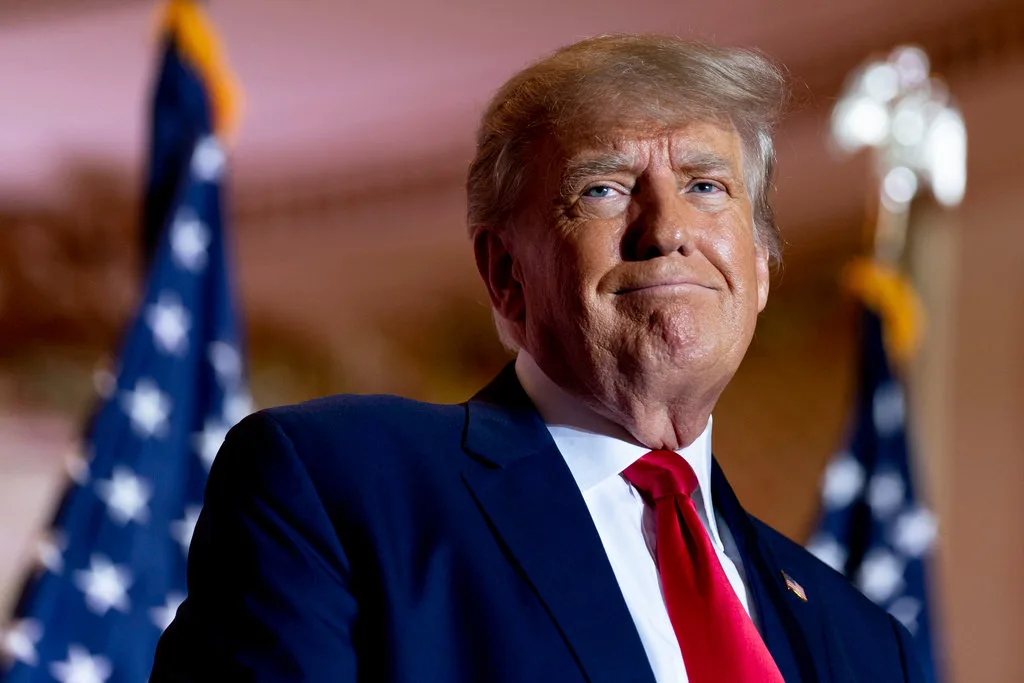If Nixon Beat Kennedy
John F Kennedy. Richard Nixon. Two iconic American Presidents, for very different reasons. From capturing the imagination to making us question our institutions, both men had a profound effect on America. Both men were Presidents during a tumultuous time in America.
But the fact that both Nixon and Kennedy were able to become President, and the consequential events that surrounded them, was only due to the result of the close and highly contested 1960 Election. In the election, John F Kennedy narrowly won the popular vote and electoral vote against Nixon.
Kennedy ostensibly won the popular vote, 49.72% to 49.55%. But included in that were the votes of the state of Illinois, which was highly influenced by the pro Democratic Chicago machine, with margins greater than the amount of people that lived in precincts, and Kennedy VP Lyndon Johnson’s friends in the state of Texas.
Chicago and Texas votes helped in the Electoral College. But beyond that, in many Southern states, the vote for the Democrat was not for Kennedy, even though it was counted as such. If the Southern votes that went to the local Democrat on the ticket but not to Kennedy were not counted for Kennedy, Nixon probably wins the popular vote.
But as we know, it is the Electoral College that decides who the President is. Did possible ballot stuffing decide the election? It is impossible to know for sure. It is probable that Kennedy’s less than 9,000 vote margin in Illinois would have evaporated and the state would have gone to Nixon if fraud were taken away.
But to win the Electoral College, Richard Nixon would have had to win Illinois and Texas. Kennedy officially won Texas by over 50,000 votes. Even if one accounts for some dodgy Johnson aligned vote counting, the state likely still goes to Kennedy on fair votes. Thus, if all legitimate votes are counted, Nixon probably wins the popular vote narrowly, while Kennedy still wins the Electoral College, and thus the Presidency.
But say no funny business happened during the election. Say Richard Nixon wore more makeup before the debate and looked better. What if slightly more Americans just listened to the debate on the radio, rather than watched it on TV? Richard Nixon could have won the election if any one of a number of marginal things went his way.
Had Richard Nixon won the 1960 Election, the trajectory of America and the world would have been completely different. On all issues. Military, economic, social and cultural issues would have been approached differently, and reacted to by the people differently. In many ways, the course they would have taken is unknowable. This will be an exercise of educated guessing based on logic and trends.
Take civil rights. This was a time when both major party candidates were not too extreme one way or the other. Nixon vocally supported civil rights. Kennedy was not a civil rights crusader in the beginning. The modern way we apply right vs left on many issues had not formed or were only just forming in the early 60s.
Had Nixon been President starting in 1961, and won a second term, it is probable that the Civil Rights Act would have passed under his administration. At the time, both Republicans and Democrats had liberal and conservative wings. While the “Party Switch” is a false, left wing narrative, had the Civil Rights Act been passed under Nixon, the manner in which the two major parties talked about race would have been very different.
The left wing of the Democratic Party would not as effectively be able to weaponize racial grievance and purported racism of the Republican Party to such a degree. More importantly, the issue of race in America, which itself is so complex that it needs its own article to be fleshed out properly, would not be one that is as clearly one party versus the other.
Consequently, the lesser incentive to pick at the scab of race would lead to more constructive dialogue on it. The ability to speak in a nuanced way; about the consequences of racial oppression that can still be felt today, as well as the understanding that disagreeing with an extreme characterization of racism is not akin to defending racism, would be more prevalent. More clear and relevant discussions, as well as solutions, would be taking place in this country.
What about Vietnam? This is where it gets more difficult. For one, we do not know for sure how Kennedy would have approached Vietnam by the mid 1960s compared to Lyndon Johnson. We also do not know for sure how Nixon would have approached the beginning, compared to Kennedy and Johnson.
Nixon did preside over an America in Vietnam, but at a later time in the war. Early 1960s Nixon’s Vietnam tactics, amount of force and manpower, and any other relevant details, are impossible to ascertain with any modicum of confidence. It is not just about more American troops versus less. If certain battles had gone differently, different decisions were made, or the public had a different view about the war, the accompanying aspects of the war would have also been different.
Vietnam was said to have fractured the New Deal coalition. Kennedy’s 1960 win, assassination in 1963, and Lyndon Johnson’s subsequent efforts at Civil Rights, the Great Society, and the Vietnam War, broke apart the vast coalition of the Democratic Party, which had, since the Great Depression, gave them regular control of Congress, and control of the White House for the entire time of 1932-1968, except when interrupted by Dwight Eisenhower.
Obviously, the multiple endpoints fallacy can exaggerate Democratic dominance during the time, as had Nixon won in 1960, Democrats wouldn’t have any dominance to speak of on a 1932-1964 timeline. But it is true that from the 1930s to the mid 1960s, everyone from African Americans to professionals in major cities, to Catholics, “ethnic” Irish and Italians and Southern Protestant whites, voted for the Democrats.
The implosion of Vietnam at the same time as the Civil Rights movement and Great Society social programs, made the holding together of such disparate groups untenable for the Democrats. For reasons too numerous to go into in this article, this fracture started the process towards the modern electoral map you see today.
Had Kennedy/Johnson not been the administration of the early-mid 1960s, like with the racial issue, the voting by party would be much more heterogeneous. The stratifying of certain regions with one party, which thus accentuate the latent cultural differences between the regions, would not have happened, or at the very least, been less acute.
Confidence in our institutions would possibly have been higher. I say “possibly,” because I want to resist the urge that many have, of romanticizing a possible alternate reality. Just because Kennedy was assassinated and Johnson took his place, does not mean that Kennedy would have necessarily kept us out of Vietnam, or even done a better job than Johnson.
I think that Nixon would have approached Vietnam in a better way, but the details are too unknowable. I would have more confidence in saying that had Nixon won in 1960, Watergate would not have happened. 1960 was when Nixon’s distrust of the press and other forces in the US establishment grew. The need to spy on the Democrats or to cover such a thing up would not have been as strongly felt.
No Watergate means more confidence in American leaders. The partial result of Watergate; the election of the ostensibly contrasting Jimmy Carter, might never have happened. And from there, we have over 40 years of possible changes to Presidential timelines, electoral maps, and so forth, that could lead to any number of different alternate possibilities.
What about the Cuban Missile Crisis? Had Nixon been President, could we have seen the literal end of the world? Anything is possible, but it is more likely that the Cuban Missile Crisis wouldn’t have happened in the first place. Kennedy’s perceived inexperience led to more belligerence by Soviet leader Nikita Kruschev. Nixon may have been able to dissuade Kruschev from ever attempting to place Soviet missiles in Cuba.
As you can see, the “what if,” if you change something in history from over 60 years ago, leads to endless speculation. I haven’t even gone into the topic of the counter culture, which was effected by Civil Rights, the feminist movement, and backlash to the Vietnam War. Each topic itself deserves its own article. But were I to go into the alternate history of these trends here, this article would turn into a novel.
The only way to (semi) coherently talk about alternate history from decades back is to simply scratch the surface of a few key topics and/or have a narrow topic of focus and narrative. Imagining how all the events would have happened in an interconnected way (which is how events and trends actually happen) gets much too complicated. And the imagining too often turns into the projection of the fantasies of the writer.
So how then to go about alternate history? The best way in my opinion to to briefly touch upon the important topics and give important, succinct details. Give possibilities based on logic and what we know, but only as a template for what may have turned out different. Not a play by play of the imagined 60 years in the alternate reality.
What would have happened had Richard Nixon beat John F Kennedy in 1960? Civil Rights, how we talk about race, political coalitions, polarization, the history or American Presidents, and America’s actions in the world would have been different. To what extent and in what detail? If we are honest, we can never know for sure.
But the 1960s were the beginning of the now present culture wars, and the election results, and specific events of the decade definitely shaped how America deals with the cultural divisions we see so vividly now. It is therefore our civic duty to learn about these individuals, events and history of the past, which shapes America’s present, and our future.
MORE ALTERNATE HISTORY


